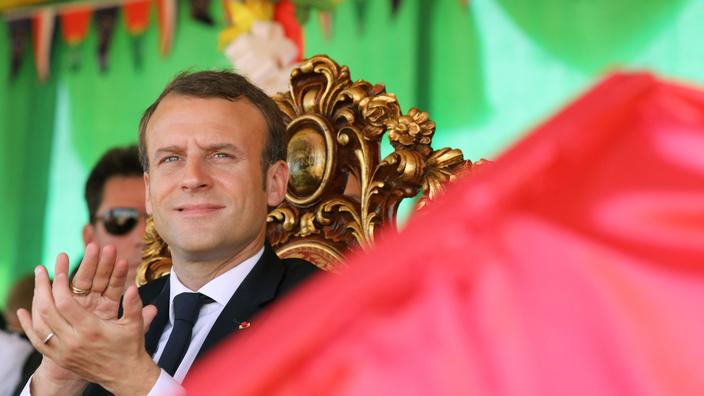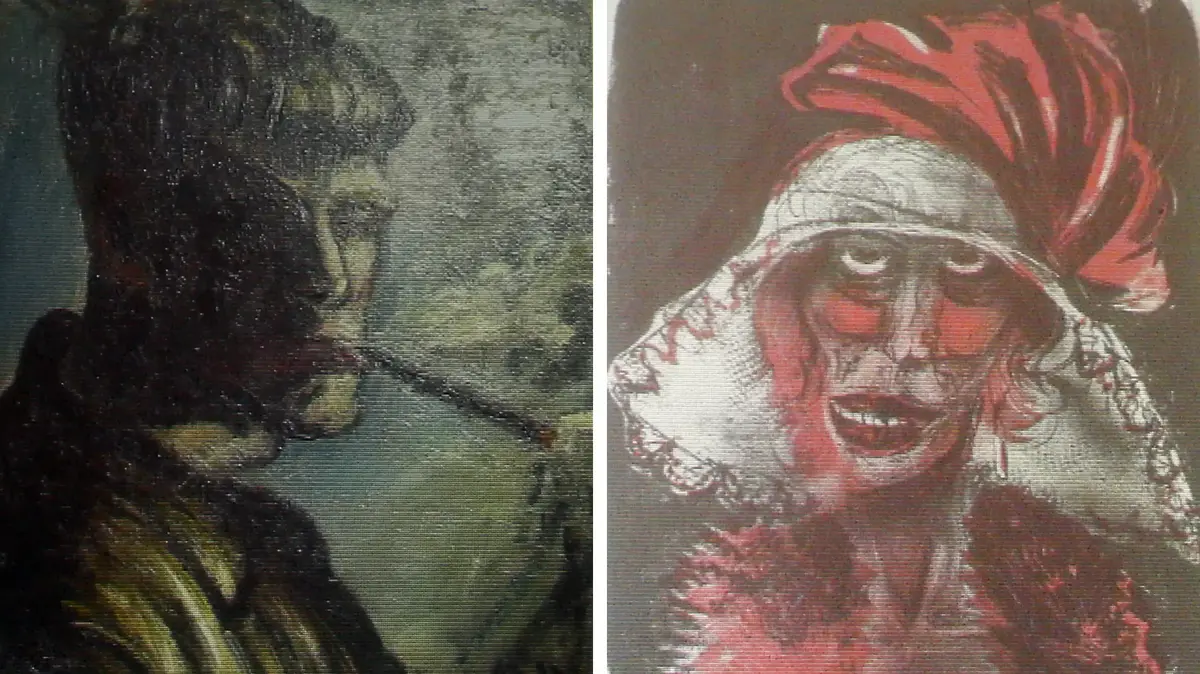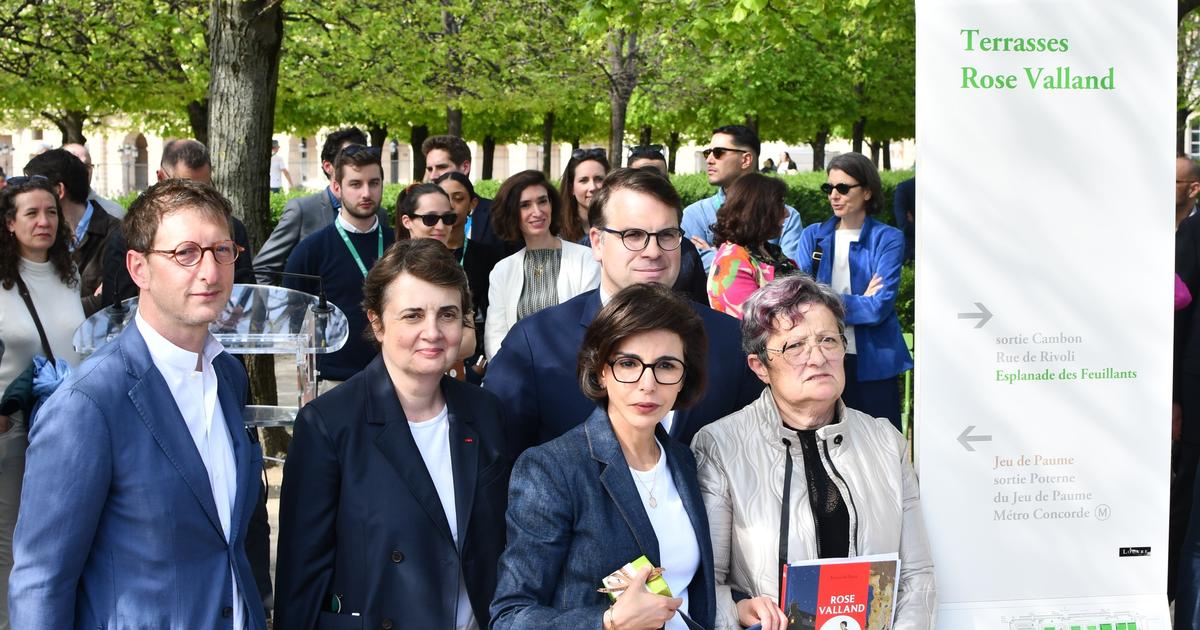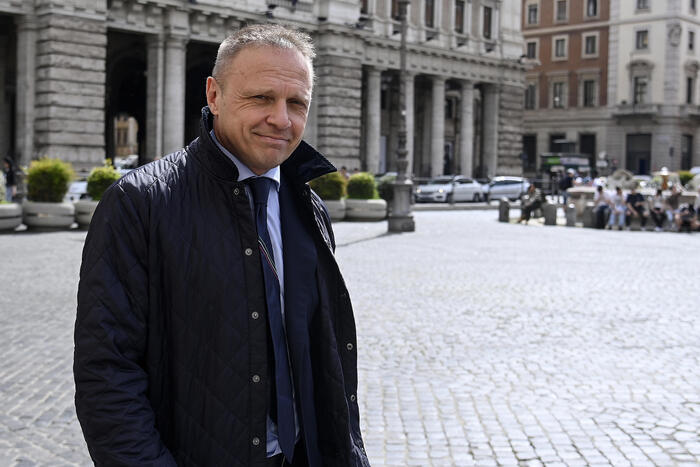"
African heritage must be able to be exhibited in Africa,
" Emmanuel Macron said in Ouagadougou in 2017. "
I want the conditions to be met within five years for temporary or permanent restitution of African heritage in Africa,
" he said. added. At the Africa-France summit in Montpellier on October 9, the President of the Republic also announced the “
restitution
” of twenty-six works of art claimed by Benin, from the “
Trésor de Béhanzin
”, taken from the Abomey palace. in 1892. If the very term restitution is controversial, leading to the acquisition of ill-gotten goods, the process has been carried by Emmanuel Macron since the start of his five-year term.
Read also Should France return African works from its museums to Africa?
In November 2018, the Savoy-Sarr report listed 90,000 works of art from Africa, including 70,000 at the Musée du Quai-Branly Jacques Chirac alone, of which 46,000 were acquired during the period 1885-1960 and could be repatriated. .
In 2019, France launched a forum "
devoted to the establishment of a new cultural cooperation in the field of African heritage with its European and African partners
".
A major obstacle is opposed to the return of works, Article L. 451-5 of the Heritage Code which provides for the inalienability of collections.
In addition, all the property belonging to French public collections are national treasures, within the meaning of Article L. 111-1 of the Heritage Code.
The Senate takes up the subject
Until now, the President of the Republic gave these works to the country which claimed them, then a law validated this return.
As for the transfer of works to Benin endorsed by a vote of Parliament, the only one empowered since the Revolution to bypass inalienability.
In an information report, the Senate regretted that “
restitution undermines the principle of inalienability of collections
”.
The upper house had made 15 proposals summarized in three axes: setting up a sustainable scientific approach, giving more substance to the universalist conception of museums and renewing France's commitments in the fight against the illicit trafficking of cultural goods.
Read alsoRestitutions: the looting of artists' studios under study
The bill presented on October 13 takes up two orientations: the first concerns the creation of a commission of experts "
issuing in complete independence an opinion, in particular on the restitution
", specifies the Senator Max Brisson.
“
It will give continuity to politics and will not be subject to the vagaries of political alternations.
It will also make it possible to reduce the aspect of the prince of these restitutions
”.
The second orientation concerns the restitution of human remains.
A political marker
Emmanuel Macron had seized on this subject and had "
restored
" several objects.
He announced that he would send 26 works to Benin, as well as the drummer speaker of the Ebriés of Côte d'Ivoire.
In Senegal, France gives the saber of El Hadj Oumar Tall, a warlord and Muslim scholar who conquered in the 19th century a huge territory straddling Senegal, Guinea and Mali, and fought against the army French.
France in a political gesture towards Algeria also sent the remains of 24 combatants hostile to the French presence.
The latter were buried on July 5, the anniversary of independence, during a solemn funeral in the cemetery of El Alia, the largest in Algeria, in the presence of President Abdelmadjid Tebboune.
Read alsoColonization: Algiers still demands the "repentance" of France
Three senators propose this law, Catherine Morni-Desailly, Pierre Ozoulias and Max Brisson.
The latter hopes to see it succeed "
before the presidential election
".
He also says he is "in
favor of a policy of circulation of works, loan or exchange
".
“
If we give restitution a moral dimension, it is because we look at it with the glasses of our time and this is part of a policy of repentance, of rewriting history and of communitarianism which comes up against our republican universalism.
We must have a more global vision of free movement of the exchange of works and dialogue of cultures rather than a vision of withdrawal
”.















